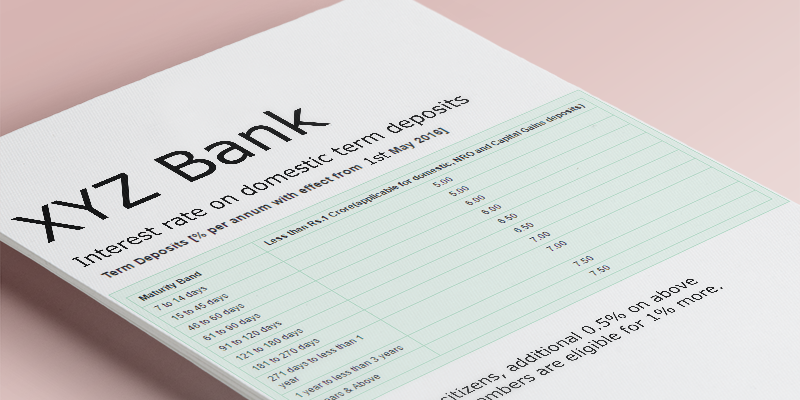A loan against a term deposit, also known as a loan against a fixed deposit (FD), is a secured loan that allows bank depositors to borrow against the security of the deposits.
Loans or cash credit limits can be availed against Fixed Deposits, or Cash Certificate and Recurring deposits.
Loans can be availed against domestic as well as NRI FDs.
The loan amount is usually a percentage of the FD’s value, typically between 75% and 90% of the deposit value. Interest is charged on the borrowed amount. Banks need not charge a uniform rate of interest. Therefore, different banks charge interest at 0.5% – 2% above the applicable FD rate on the loan outstanding or cash credit debit balance.
Loan against fixed deposits is extended to all the fixed deposit holders, be they individual holders or those with joint accounts. However, in the following cases loan against a deposit does not qualify.
- Loans are granted only against those deposits, which are free from lien, restraint, or encumbrance.
- FD in the name of a minor does not qualify for this facility. However, if the parent (depositor) declares that the loan money is for the benefit of the minor like education or medical expenses, banks may consider such a request and grant a loan against the deposits in the name of the minor.
- Investors of a 5-year tax-saving FD cannot apply for this type of loan
These loans can be repaid as a lump sum or in installments (not later than FD tenure). No penal interest or processing charges are levied on the Loan against a fixed deposit
A loan against an FD can be a good option for urgent or unforeseen needs. It can offer benefits like lower interest rates, flexible repayment terms, and the ability to continue earning interest on the FD.
Related Posts:
LOAN AGAINST SECURITY OF NSC AND KVP






